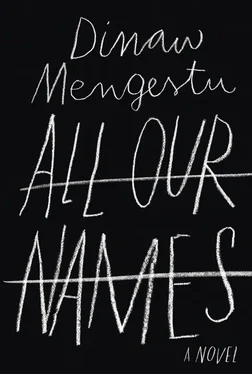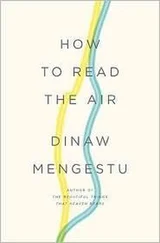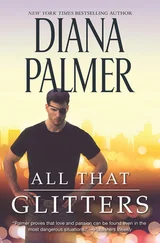I wanted to ask him if that was part of the plan, but I knew he would have said yes. The plan was to make war; anything that followed was part of it.
Had the remaining boys not found a house from which to stage a final attack, we would never have made it through the night. Doors were breaking all across the neighborhood, and it was only a matter of time before the soldiers made it to ours. The retreat, as it turned out, was deliberate: draw a large force into a narrow space, and then inflict as much damage as possible.
The boys from Joseph’s army made their final stand within shouting distance of where we were hiding. They fired all at once, and continued to do so for as long as they could — dozens of shots in only a few seconds, and not a single one wasted. The barrage that followed must have leveled the house, and most likely the ones next to it. All the soldiers in the area converged on that spot and fired their weapons, if only to claim they had been a part of the battle. By the time they finished, there was enough light in the sky to make the road clearly visible.
“It’s finished. We should leave now,” Isaac said. I didn’t agree or disagree. I was grateful to be alive; I was happy to follow orders.
We didn’t see the old man or his wife before we left, although Isaac did leave a small offering of money for them on the floor. I expected the streets to be empty, but within minutes of leaving the house we came across groups of older women and packs of young boys, scouring the neighborhood for anything that had been abandoned or that could be honestly carried off, from shell casings to large pieces of broken glass. The first bullet-riddled body we saw was of a middle-aged man whose shoes had already been lifted from him. Other bodies were being carried off in wheelbarrows by sisters and wives so they could be put properly to rest.
We took the most obscure roads back to Joseph’s house, steering wide of the city center and the hundreds of soldiers called up to protect it. We headed north for as long as we could before cutting west, straight through the old neighborhood where Isaac and I had once lived. Neither of us said anything to acknowledge this.
It was late in the afternoon by the time we finally neared Joseph’s house.
“Eight hours,” Isaac said. “You couldn’t have found a shorter route.”
“Not without another map,” I told him.
We had nothing left. It hurt to speak — there was dust covering not only our bodies but our throats as well. Isaac pointed toward the house and tried to say something but decided it wasn’t worth the extra effort to do so. Half a block before we reached the front gate, two armed men emerged from a car parked a few feet in front of us. They were Joseph’s men, and Isaac raised his hand to wave to them. They stopped in front of their car and aimed their guns in our general direction as they yelled something; I couldn’t understand the words, but it was clearly a warning not to come any closer. Isaac shouted back, and they shouted the same thing louder in return, this time making sure to refocus their aim squarely on our chests. Isaac held out his hand so I would know to stop walking. A volley of curses and threats that I was afraid was going to last until we were finally shot was lobbed back and forth between them. I begged Isaac to leave, but he refused to acknowledge me. He threw both his arms into the air to show he wasn’t hiding anything; when that failed, he stripped off his shirt, and then his shoes and pants, until he had only his socks and underwear left. He was daring them to shoot him. And why shouldn’t they? Many others had already died because of us that morning, and here we were, unscathed. How else to deal with that?
Joseph finally emerged, surrounded by a half-dozen armed men. I could barely see him through all the bodies and barrels. I expected him, after all we had gone through for him, to make a dramatic show of welcoming us back, especially Isaac. Instead, he stood outside the gate and motioned with his head for the guards to let us in.
As we passed the first two guards who had stopped us, Isaac spat at their feet and told them in English that they were lower than dogs. Once we walked through the gates, we saw there was practically nothing left of the house we had known. All the furniture was gone, except for a single couch in the living room; the spirit and mood of the house had been lifted as well. The courtyard was filled with men. There were dozens scattered under the tree, in the driveway, and around the open front door, most of them in uniforms with the Tanzanian flag on their shoulders.
“We’ve been invaded,” Isaac said, “by our friends from Tanzania.”
“They came last night?” I asked him.
But I knew the answer. Of course they did. Those seven boys were the distraction that got them here.
Joseph yelled out for Isaac from the living room. Once I heard his voice, I knew I was right to have been afraid of him. His guards still surrounded him, even as he lay semi-reclined on a couch in an otherwise empty room.
“I thought you two were dead,” he said.
“No, not yet,” Isaac said.
Joseph turned his attention to me.
“You are very lucky,” he said. “You didn’t have any problems?”
“None,” I told him.
I felt almost equal to him as long as I knew we were both lying.
“We have to leave this evening,” he said. He pointed to me. “That includes you as well.”
I nodded my head, but only because I didn’t know what else to do.
Joseph spent the rest of the afternoon sequestered in the living room; Isaac and I retreated to our familiar spot in the courtyard.
“Do you know where we’re going?” I asked him.
“To his father’s village,” he said. “He wants to liberate that first and then work his way back to the capital. They’re waiting for him already.”
“There’s too many of us.”
Isaac shook his head. “Most of them are going to stay,” he said. “They’re not from here. They would look like a foreign army if they went into a village. Here in the capital, they can hide until we’re ready to come back. When it’s over, Joseph will give them more money and guns, and they’ll go back into the bush.”
“I could stay with them,” I said.
Isaac laughed. “And what would you do?” he said. “There’s already a cook.”
He didn’t say that to hurt me, or maybe he did. It was impossible to know for certain anymore.
We sat under our tree. Isaac leaned back and stretched out his legs. All he was missing was the uniform and sunglasses. After a few minutes of silence, I spoke.
“Joseph tells you everything.”
He didn’t respond.
“No one finds that odd.”
He turned his back to me. He was offering me a chance to stop. I saw that and refused.
“You haven’t known him that long. You’ve never been in any army. You’re a poor kid from a little village. You have nothing he needs, and yet he treats you like—”
I wanted Isaac to see me. I wanted him to feel threatened and afraid as I had, and still did. Knowing where he went at night was my only weapon. Before I knew what I was going to say next, he broke my nose with his elbow. He spent several minutes after that drumming the right side of my face with his fist. I felt the pain; I didn’t mind it, however. I didn’t cry or ask him to stop. I could hear the men in the courtyard cheering him on, and I felt closer to them than I did to my own body. When Isaac stood up, he had his black snub-nosed pistol in his hand. He walked away without pointing it at me, but I knew he had thought of using it. Another man came over and kicked me playfully in the back and in the ribs. I didn’t mind that, either. For once, I thought, someone was speaking to me honestly.
Читать дальше












